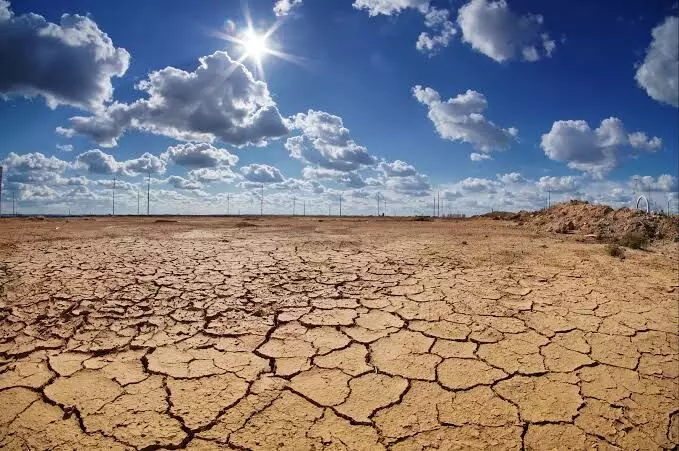Climate change a hindrance to achieve Sustainable Development Goals: World Meterological Organization
UN Secretary-General Antonio Guterres said that "the world is woefully off-track", adding that the global response to climate change was "falling far short"
By Newsmeter Network
Representational Image
New Delhi, Sep 14 (PTI) Climate change is hugely undermining global efforts in achieving the United Nations' Sustainable Development Agenda 2030, according to a new multi-agency report coordinated by the World Meteorological Organization (WMO).
Systematically examining climate change and extreme weather impacts on Sustainable Development Goals (SDGs), the report said that only 15 per cent of the SDGs, such as tackling hunger, poverty and ill-health among others, were are on track. Other SDGs include improving access to clean water and energy and other aspects of sustainable living and growth.
Further, "at the half-time point of the 2030 Agenda, the science is clear the planet is far off track from meeting its climate goals," the report titled "United in Science 2023" said.
Off Track in meeting climate goals
UN Secretary-General Antonio Guterres said that "the world is woefully off-track", adding that the global response to climate change was "falling far short".
Ninety per cent of deaths and 60 per cent of economic losses from extreme weather events between 1970 and 2021 occurred in developing economies, severely undermining sustainable development, the report said.
Further, there is a 66 per cent chance that at least one of the next five years will see the annual average global surface temperature temporarily breaching 1.5 degrees Celsius, with that chance increasing with time, it said.
Greenhouse emissions must reduced by 45 per cent
Global greenhouse gas emissions must be reduced by 30 and 45 per cent to meet the Paris Agreement goals of limiting warming to well below 2 and 1.5 degrees Celsius, respectively, by 2030, it said even as fossil fuel CO2 emissions increased 1 per cent globally in 2022 compared to 2021 and preliminary estimates from January-June 2023 showed a further 0.3 per cent rise.
The report pointed out that "very limited progress" had been made in narrowing the gap between emissions reductions promised by countries and those needed to fulfil the Paris Agreement goals and that in order to do so, "large-scale, rapid and systemic transformations" were required.
"Science is central to solutions," wrote Guterres in the report's foreword.
While it was widely understood that weather, climate, and water-related sciences provide the underpinnings for climate action, it is less recognised how these sciences can supercharge progress on the SDGs across the board, he wrote.
As examples, the report showed how weather predictions could help boost food production and move closer to zero hunger and how integrating epidemiology and climate information could help anticipate climate-sensitive diseases.
"Groundbreaking scientific and technological advances, such as high-resolution climate modelling, artificial intelligence and nowcasting, can catalyse transformation to achieve the SDGs," said WMO Secretary-General Petteri Taalas.
"Achieving Early Warnings for All by 2027 will not only save lives and livelihoods but also help safeguard sustainable development," he said referring to the UN's initiative to ensure everyone's protection from hazardous weather through early warning systems by the end of 2027